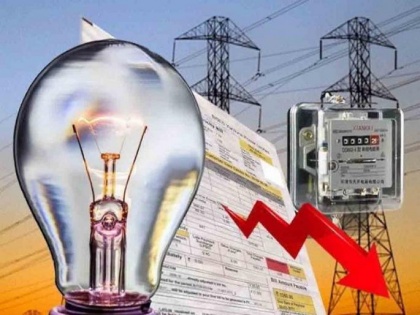Power Bills in Delhi Likely to Increase by Up to 7-10% ; Here’s Why
By Lokmat English Desk | Updated: May 12, 2025 11:51 IST2025-05-12T11:50:47+5:302025-05-12T11:51:44+5:30
Demand of power supply is on rise as the temperature in summer increases. Amid the rising heat residents will ...

Power Bills in Delhi Likely to Increase by Up to 7-10% ; Here’s Why
Demand of power supply is on rise as the temperature in summer increases. Amid the rising heat residents will see rise electricity bills as well. As per the reports bills are likely to increase by 7-10 per cent during May-June because of the revision in the Power Purchase Adjustment Cost (PPAC) charged by the city's power distribution companies, also known as Discoms.
The revision in Power Purchase Adjustment Cost (PPAC) was necessitated by rising fuel costs, particularly coal and gas, used in electricity generation. These fuel cost fluctuations increase costs for consumers, which are recovered by distribution companies (discoms) as a percentage of fixed and energy charges, PTI reported.
To recoup PPAC for the third quarter of 2024-25, the Delhi Electricity Regulatory Commission (DERC) issued separate orders this month to the capital's three main discoms, approving varying rates: 7.25% for BSES Rajdhani Power Limited (BRPL), 8.11% for BSES Yamuna Power Limited (BYPL), and 10.47% for Tata Power Delhi Distribution Limited (TPDDL). While discoms have not publicly addressed the PPAC increase, it has drawn criticism. United Residents of Delhi (URD), representing city RWAs, called the hike arbitrary, with general secretary Saurabh Gandhi alleging legal irregularities. He claimed insufficient time was provided for objections during a virtual public hearing and highlighted inconsistencies in the approved percentages across discoms, arguing that the fuel surcharge, and therefore the PPAC, should be uniform.
Quoting sources, PTI reported that discoms defend the PPAC hike as a transparent, regulator-validated statutory provision for timely pass-through of power purchase costs. Without it, discoms claim they would face liquidity constraints, potentially affecting their ability to pay power generation companies on time.
Open in app